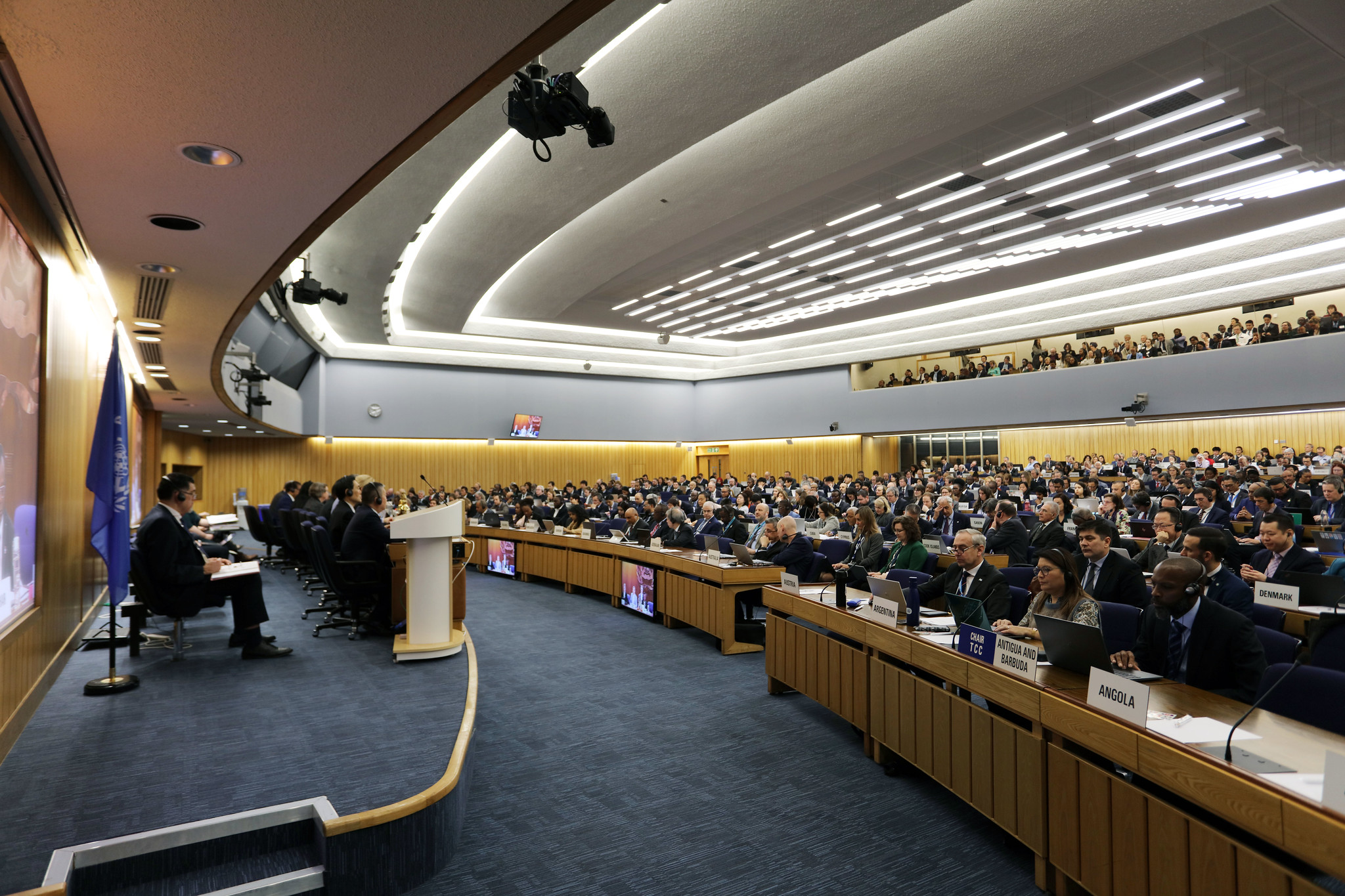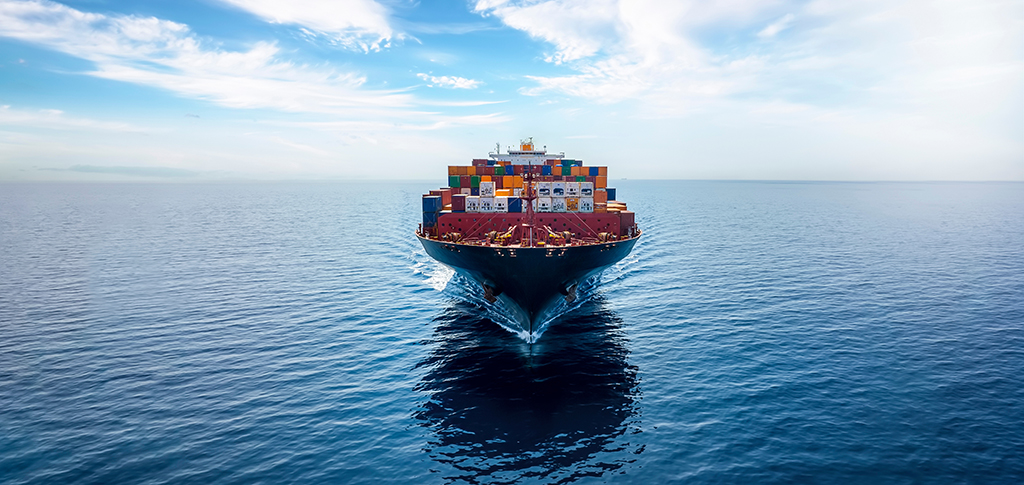IMO has agreed on an illustration of a possible draft outline of an “IMO net-zero framework” for cutting greenhouse gas emissions (GHG) from international shipping.

The Maritime Environment Protection Committee (MEPC 81) met in London from 18 to 22 March 2024.
This marks a step forward in the legal process towards adopting global regulations, referred to as “mid-term GHG reduction measures”, that will help achieve the targets contained in the 2023 IMO Strategy on the Reduction of GHG Emissions from Ships.
At the conclusion of the eighty-first session of the Maritime Environment Protection Committee (MEPC 81), held in London from 18 to 22 March 2024, IMO Secretary-General Mr. Arsenio Dominguez said: “Your Committee is indeed a forum to consider issues of critical relevance for all parts of the marine environment, and this week you made very important progress.”
The draft outline illustration of a possible IMO net-zero framework lists regulations under the International Convention for the Prevention of Pollution from Ships (MARPOL), which will be adopted or amended to allow for a new global fuel standard and a new global pricing mechanism for maritime GHG emissions.
These may include a proposed new Chapter 5 of MARPOL Annex VI containing regulations on the IMO net-zero framework, to include:
- a goal-based marine fuel standard regulating the phased reduction of the marine fuel’s GHG intensity; and
- an economic mechanism(s) to incentivize the transition to net-zero.
The goal-based marine fuel standard and pricing mechanism are mid-term GHG reduction measures specified in the revised IMO Strategy on the Reduction of GHG Emissions from Ships, adopted in July 2023. Several different proposals of what these measures should entail are currently being considered.
The possible draft outline for the IMO net-zero framework will be used as a starting point to consolidate the different proposals into a possible common structure, to support further discussions with the understanding that this outline would not prejudge any possible future changes to it as deliberations progress.
Next steps on GHG emissions
In addition to progress on the legal framework, MEPC agreed on the following next steps, ahead of its next meeting (MEPC 82), scheduled for 30 September to 4 October 2024:
- Comprehensive impact assessment on the impact of the proposed mid-term measures on Member States to be finalized and submitted to MEPC 82;
- A two-day expert workshop (Fifth GHG Expert Workshop – GHG-EW 5) to be held to discuss the preliminary findings of the comprehensive impact assessment, covering all aspects, including the modelling of revenue disbursement. The outcome will be reported to MEPC 82;
- The Seventeenth Intersessional Working Group on Greenhouse Gas Emissions (ISWG-GHG 17) to meet to consider the outcomes of the comprehensive impact assessment, the GHG-EW5, and other submitted documents for further discussions around the development of mid-term measures, and report to MEPC 82;
- ISWG-GHG 17 to develop draft terms of reference for a Fifth IMO GHG Study;
- Establishment of a GESAMP Working Group on the Life Cycle GHG Intensity of Marine Fuels. GESAMP is the Joint Group of Experts on the Scientific Aspects of Marine Environmental Protection. The GESAMP-LCA WG will be tasked to provide best possible scientific and technical assessment of issues related to the implementation of the LCA Guidelines. These guidelines allow for the calculation of GHG emissions over the full production cycle and end-use of marine fuels, known as “well-to-wake”;
- Two correspondence group have been established which will report to MEPC 83: the first group is tasked to develop a work plan on the development of a regulatory framework for the use of onboard carbon capture systems and to look into Tank-to Wake methane and nitrous oxide emissions; the second group will look into social and economic sustainability themes and aspects of marine fuels for possible inclusion in the LCA Guidelines.
Revised greenhouse gas life cycle guidelines adopted
MEPC adopted revised Guidelines on life cycle GHG intensity of marine fuels (LCA Guidelines). The updated guidelines include revised calculations for default emission factors; updated appendix 4 on template for well-to-tank default emission factor submission; and new appendix 5 template for Tank-to-Wake (TtW) emission factors.
Other environmental issues
On other agenda items, MEPC:
- Approved the establishment of two new Emission Control Areas (ECAs), in Canadian Arctic Waters, for Nitrogen Oxides, Sulphur Oxides and Particulate Matter; and in the Norwegian Sea for Nitrogen Oxide and Sulphur Oxides. These will be submitted to MEPC 82 for adoption;
- Approved new recommendations for the carriage of plastic pellets by sea in freight containers, covering stowage, packaging and correct transport/cargo information;
- Endorsed, in principle, the draft action plan for the reduction of underwater noise from commercial shipping, with a view to further consideration and final endorsement at MEPC 82;
- Endorsed the updated work plan for the development of guidelines for new alternative fuels, including the development of guidelines for hydrogen and ammonia as fuels, low flash-point fuels and mandatory instruments for methyl/ethyl alcohols;
- Endorsed the list of provisions and instruments for revision and/or development under the Ballast Water Management Convention and approved the interim guidance on the application of the BWM Convention to ships operating in challenging water quality conditions, as well as the Guidance for the temporary storage of treated sewage and/or grey water in ballast water tanks.
